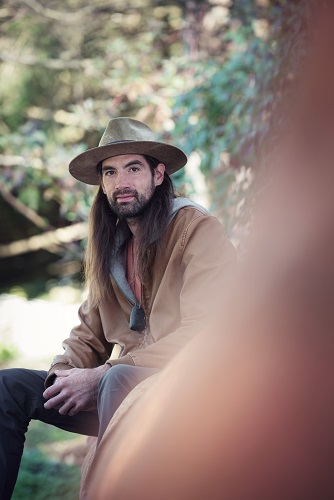
Drawing from the Land to Transform Indigenous Food Systems
Researchers in the Faculties of Land and Food Systems and Education are examining how Indigenous land-based teaching and learning can inform Indigenous food security, and support the development of food sovereignty frameworks grounded on self-determination, Indigenous knowledge, and a decolonized food system.
What is Indigenous land-based learning? It recognizes the deep connection and relationship of Indigenous people to the environment: knowledge and learning occur when people engage with their surroundings and strengthen their appreciation of the land.
Few studies exist on adapting Indigenous land-based pedagogies to urban place-based learning. This study can reveal how to implement culturally appropriate frameworks to mobilize Indigenous knowledge, deliver cross-cultural education, and help to transform Indigenous food systems.
Leading the research is Associate Professor Eduardo Jovel, in collaboration with Professor Hannah Wittman from LFS, and Associate Professor Tracy Friedel from the Faculty of Education. Much of the initial research is taking place at xʷc̓ic̓əsəm Garden (Indigenous Health Research and Education Garden) at UBC Farm. Later stages of the project will include selected Indigenous communities in the province.
The project, funded by a Social Sciences and Humanities Research Council (SSHRC) Insight Grant, has several objectives including the development of protocols for engagement with Indigenous communities and maintaining reciprocal beneficial relationships.
Other investigators from LFS include Postdoctoral Researcher Alannah Young, focussing on land-based pedagogies and community protocols, and PhD student Wilson Mendes, exploring how Indigenous learning at xʷc̓ic̓əsəm Garden impacts Indigenous youth knowledge, attitudes, and perceptions related to Indigenous food sovereignty in urban spaces.
David Robinson (pictured), an LFS master’s student in Integrated Studies in Land and Food Systems, is also part of the research team. His research is focussed on understanding how land-teachings emerge through carving, orality, and relationality.
Robinson, from the Timiskaming First Nation in northwest Quebec, is the first artist in residence stationed at xʷc̓ic̓əsəm Garden where he spent 17 months carving a sculpture from red cedar. Throughout the creative process, Robinson engaged with hundreds of visitors to the garden, drawing upon their Indigenous knowledge about the land and sharing a dialogue about traditional teaching.
“At a time when reconciliation is on the foremost Canadian agenda, I have found a personal way to integrate First Nations art and education on the land,” said Robinson. “Art and tools, ceremony and community, and the commitment to creating encounters between all citizens who are invited to touch the cedar piece, form a memory.”
Robinson’s carving features a Thunderbird, twisting wood representing tension, and a lightning snake. Youth visitors envisioned the forms and Robinson translated these into his sculptures.
Shane Pointe, xʷməθkʷəy̓əm (Musqueam) Elder, and Knowledge Keeper shared the history of the Thunderbird and lightening snake for cross-cultural knowledge exchange. Through ceremonies, he formally honoured the roots of the red cedar’s origin and then welcomed the final, transformed piece to xʷməθkʷəy̓əm (Musqueam) land.
According to Jovel, Robinson’s creative process contributed to the ongoing research by capturing the educational process and pedagogies rooted in traditional learning practices including orality, language, ancestral knowledge, and land genealogies.
“Our research approach respects Indigenous worldviews and research methodologies and aims to enhance teaching and learning by shifting toward the inclusion of diverse perspectives and ways of knowing for all learners,” said Jovel. “This project formalizes community-university partnerships between UBC Farm’s xʷc̓ic̓əsəm Garden and other stakeholders. Also, it will provide support to policy-makers, institutional representatives, educators and Indigenous groups interested in advancing land-based Indigenous pedagogical practice.”
Over the last 13 years, Indigenous land-based knowledge has been mobilized at the UBC Farm, located on unceded ancestral and traditional territory of the xʷməθkʷəy̓əm (Musqueam) people. Elder Larry Grant from xʷməθkʷəy̓əm (Musqueam) gifted the name xʷc̓ic̓ əsəm: The Place Where We Grow to the Indigenous Health Research and Education Garden in 2016.